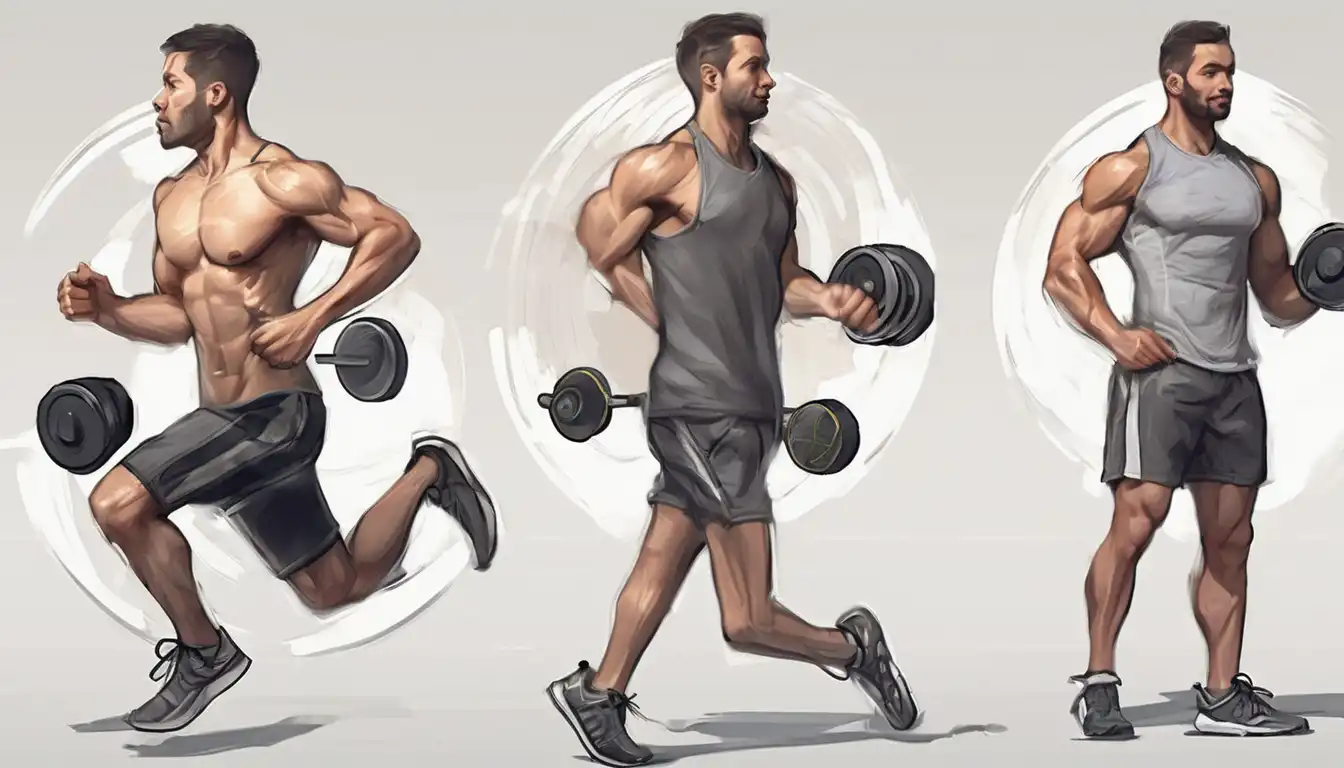Getting Started: Your Journey to Fitness Begins Here
Embarking on a fitness journey can feel overwhelming, but with the right approach, anyone can build a sustainable workout routine that delivers real results. Whether you're looking to lose weight, build strength, or simply improve your overall health, this comprehensive guide will walk you through every step of creating and maintaining an effective fitness plan.
Why Starting a Fitness Routine Matters
Regular exercise offers numerous benefits beyond physical appearance. Consistent physical activity boosts energy levels, improves mental health, reduces disease risk, and enhances overall quality of life. Many beginners find that once they establish a routine, they experience increased confidence and better sleep patterns within just a few weeks.
Setting Realistic Fitness Goals
Before you hit the gym or start exercising, take time to define clear, achievable goals. SMART goals (Specific, Measurable, Achievable, Relevant, Time-bound) work best for fitness beginners. Instead of vague objectives like "get fit," aim for specific targets such as "walk 30 minutes daily" or "complete three strength training sessions per week."
Consider starting with these beginner-friendly goals:
- Exercise 3-4 times per week for 30-45 minutes
- Increase daily step count by 2,000 steps
- Learn proper form for 5 basic exercises
- Consistently complete workouts for one month
Choosing the Right Type of Exercise
Selecting activities you enjoy is crucial for long-term consistency. Most fitness routines should include three main components: cardiovascular exercise, strength training, and flexibility work.
Cardiovascular Exercise Options
Cardio exercises improve heart health and burn calories. Beginner-friendly options include:
- Brisk walking or hiking
- Cycling (stationary or outdoor)
- Swimming or water aerobics
- Dance fitness classes
- Low-impact elliptical training
Start with 20-30 minutes of moderate-intensity cardio and gradually increase duration and intensity as your fitness improves.
Strength Training Fundamentals
Building muscle helps boost metabolism and prevent injury. Beginners should focus on compound movements that work multiple muscle groups simultaneously. Essential exercises include:
- Bodyweight squats
- Push-ups (modified if needed)
- Planks
- Dumbbell rows
- Glute bridges
Begin with light weights or bodyweight exercises, focusing on proper form rather than heavy lifting. For more guidance on proper technique, check out our guide on mastering exercise form.
Creating Your Weekly Workout Schedule
Consistency matters more than intensity when starting out. A balanced weekly schedule might look like this:
- Monday: 30-minute walk + bodyweight exercises
- Tuesday: Rest or active recovery (light stretching)
- Wednesday: 25-minute cycling + core work
- Thursday: Rest
- Friday: Full-body strength training
- Saturday: 40-minute enjoyable activity (hiking, dancing)
- Sunday: Rest or gentle yoga
Building Workout Duration Gradually
Avoid the common mistake of doing too much too soon. Follow the 10% rule: increase your workout duration or intensity by no more than 10% per week. This gradual progression prevents burnout and reduces injury risk.
Essential Equipment for Beginners
You don't need expensive gear to start exercising effectively. Basic equipment includes:
- Comfortable athletic shoes
- Moisture-wicking clothing
- Water bottle
- Exercise mat
- Set of resistance bands or light dumbbells
Many effective workouts require no equipment at all. Bodyweight exercises can build significant strength when performed consistently.
Nutrition and Recovery: The Support System
Exercise alone isn't enough—proper nutrition and recovery complete the fitness picture. Hydration is particularly important; drink water before, during, and after workouts.
Pre- and Post-Workout Nutrition
Fuel your body appropriately for exercise sessions:
- Eat a light snack 1-2 hours before working out
- Include protein and carbohydrates after exercise
- Stay hydrated throughout the day
- Consider our nutrition guide for active individuals
The Importance of Rest Days
Rest days allow muscles to repair and grow stronger. Active recovery activities like walking, stretching, or gentle yoga can be more beneficial than complete inactivity. Listen to your body—if you feel excessively sore or fatigued, take an extra rest day.
Staying Motivated Through Challenges
Maintaining motivation is often the biggest hurdle for beginners. These strategies can help:
- Track your progress with a fitness journal or app
- Find a workout buddy for accountability
- Vary your routine to prevent boredom
- Celebrate small victories along the way
- Remember why you started when motivation dips
Overcoming Common Beginner Obstacles
Most beginners face similar challenges. Time constraints often top the list—schedule workouts like important appointments to ensure they happen. For those struggling with consistency, shorter, more frequent sessions often work better than occasional long workouts.
Safety Considerations and Injury Prevention
Proper technique prevents injuries that could derail your progress. Always warm up for 5-10 minutes before exercising and cool down afterward. If you experience pain (not to be confused with normal muscle soreness), stop immediately and consult a healthcare professional.
When to Seek Professional Guidance
Consider working with a certified personal trainer, especially if you have pre-existing health conditions or specific goals. Many gyms offer introductory sessions that teach proper form and program design. Our resource on selecting a fitness professional can help you make an informed choice.
Measuring Progress Beyond the Scale
While weight loss might be a goal, non-scale victories matter too. Notice improvements in:
- Energy levels throughout the day
- Clothing fit and body measurements
- Strength increases (lifting heavier or doing more reps)
- Improved mood and reduced stress
- Better sleep quality
Making Fitness a Sustainable Lifestyle
The ultimate goal is making exercise an enjoyable, permanent part of your life. Be patient with yourself—building new habits takes time. If you miss a workout, simply resume your schedule without guilt. Consistency over weeks and months creates lasting change.
Remember that every fitness journey is personal. What works for others might not work for you, and that's perfectly normal. The best exercise routine is the one you'll actually do consistently. Start small, build gradually, and celebrate every step forward in your fitness journey.
